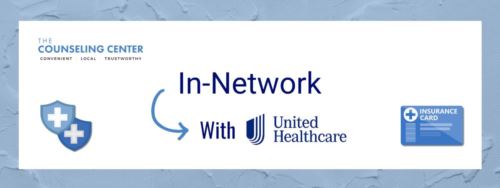

Why You Should Stay Away From Therapy Speak In Everyday Conversations
There’s been an enhanced focus on mental health in recent times, bringing once-taboo topics into public discourse. While this progress is admirable, it has also begun a complication that can hinder meaningful discussions: "therapy speak."
This sort of language is overused, misunderstood, and taken past its intent by untrained people in daily situations and on social media sites like TikTok, Instagram, and more. Learn more about what therapy speak is, how it influences people, and find tips on communicating about mental health treatment more compassionately.
What Is Therapy Speak?
Therapy speak refers to using psychological jargon, often adapted from counseling sessions, in regular conversations. Some expressions have shifted from professional clinical settings and become prevalent in social media posts, headlines, and, even worse, heated arguments between family members.
When these words are misconstrued in general conversation, they can become a way to evade deeper dialogue and detrimentally misinterpret complex emotions. They might even shut down valuable conversations with lasting negative results, as people with no training or credentials could inaccurately diagnose themselves or others they care about.
Here are several examples of therapy speak:
- “I’m setting a boundary,”
- “That’s triggering for me,”
- “Are you doing the work?”
- “Is it a safe space?”
- “Maybe you’re processing your trauma.”
While these terms can be helpful and rewarding within a therapeutic surrounding at a licensed facility like The Counseling Center, they are typically unsuitable in everyday life.
Therapy Speak Can Weaken Real Conversation
At TCC, we encourage the integration of mental health practices into regular life. However, we also acknowledge the potential pitfalls of using professional or specialized language in daily life. Engaging in therapy speak can dilute the genuine intent of discussions, creating barriers instead of nurturing a shared understanding. We’ve found people commonly use therapy speak as a defense mechanism.
There could be a sense that therapy speak can’t be challenged as it mimics what you may encounter at a treatment facility. Yet effective dialogue relies on active listening, mutual understanding, and empathy.
The Affect of Therapy Speak
1. Diminishing Real Connections
Overusing therapy speak can make interactions feel mechanical or distant, eliminating the emotional warmth that promotes genuine connection. It might “therapize” family relationships, transforming significant heart-to-heart discourse into what might sound like a 20-second reel produced by a mental health professional on TikTok.
For instance, telling a friend, “I need to hold space for myself right now,” may sound formal and distant compared to just verbalizing, “I’m feeling overwhelmed and need a bit of time to think.”
2. Improper Use and Misunderstanding
Therapeutic phrases have specific meanings within proper contexts. Improperly using phrases like ”trauma” or “narcissistic” not only diminishes their real meaning but can also spread stigma around mental health disorders. People seek to diagnose instead of being attentive and creating time for actual discussion.
The Counseling Center encourages thoughtful language that respects the importance of phrases employed in therapeutic settings, as long as they are not misused or diluted in daily discussions. We’ve discovered that therapy speak frequently sows confusion, with numerous words used inaccurately. This language might serve as a shield to guard us from guilt, judgment, or obligation.
3. Avoiding Accountability
Even though concepts like self-care and boundaries are significant, therapy speak can sometimes be misused to deflect responsibility or circumvent accountability. For instance, declaring, “I’m protecting my boundaries,” to explain hurtful behavior can undermine the honesty and trust needed in mutually beneficial relationships. There are always different words to excuse self-serving or even aggressive behaviors. The term “boundaries” has become specifically galling to professional therapists.
Therapeutic phrases are now used when people just don’t wish to do something. Considering all the disputes that follow, you may ask if your “boundary” has more importance than your personal relationship.
How to Communicate Constructively Without Therapy Speak
We feel genuine dialogue doesn’t require complex terminology. Rather, it’s about being considerate, straightforward, and sincere. Our counselors have some helpful tips:
1. Speak From the Heart
Focus on how you feel instead of depending on buzzwords when sharing emotions. For instance:
- Instead of: “You’re gaslighting me.”
- Try: “When you say that, it makes me feel like my perspective isn’t being valued.”
2. Prioritize Understanding
Seek to listen attentively in lieu of labeling behavior. Expressions like “Help me comprehend where you’re coming from” promote beneficial communication.
3. Be Conscious of Your Audience
Remember that not everyone is familiar with clinical terms. Utilizing simple, relatable language helps get your message across more effectively.
4. Use Boundaries Sparingly
Boundaries are vital, but they should be communicated thoughtfully. In lieu of: “I’m setting a boundary.” Try: “I must step back from this discussion for now so I can think more clearly.”
Therapy offers tools, not word-heavy scripts. Counselors at TCC regularly evaluate how you’re using what you’ve been taught to ensure it improves, rather than detracts from, your relationships.
How The Counseling Center Fosters Effective Communication
At The Counseling Center, we aim to enable patients with the abilities they need to handle their mental health condition while developing stronger relationships. Our services include:
- Individual Therapy: Private sessions to strengthen self-understanding and boost emotional intelligence.
- Family and Couples Therapy: Helping loved ones connect more beneficially and work through disagreements positively.
- Group Therapy: Providing a safe space for authentic communication in a supportive atmosphere. Our professionals stress useful, everyday applications of therapeutic concepts, ensuring you can connect meaningfully with others without falling back on jargon.
Get Specialized Mental Health Support Today
If you’re ready to enhance your understanding of yourself and improve your relationships, we’re ready to help. Find out more about our intensive outpatient and outpatient programs. If you seek help right away, please reach out to our round-the-clock hotline at 833-248-6271. Together, we can empower you to communicate with clarity, purpose, and empathy—without sacrificing who you are.



